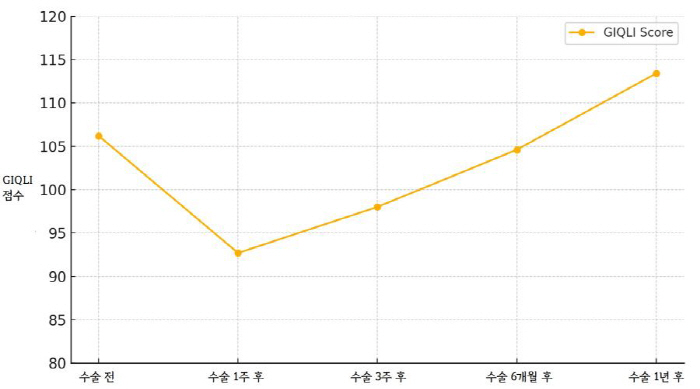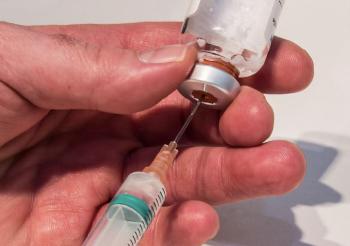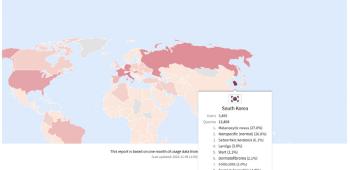Quality of Life Recovered 6.4 Weeks After Laparoscopic Colorectal Cancer Surgery
May 14, 2025
|
The study systematically analyzed the recovery process from immediately after surgery to a year using a Korean-verified evaluation tool, and most patients were found to have recovered their quality of life to preoperative levels after an average of 6.4 weeks after surgery.
Quality of life evaluation after colon cancer surgery is not only a basis for comprehensively judging the outcome of surgery, but is also used as an important indicator for optimized patient management. However, most of the studies tracking long-term changes in quality of life were fragmented, and there was no proven evaluation tool made in Korean.
In response, Professor Oh Heung-kwon's team developed a Korean version of the `Gastroenterological Quality of Life Index (GIQLI)'. GIQLI is a tool to evaluate quality of life related to digestive health, and comprehensively evaluates ▲ symptoms (such as abdominal pain) ▲ physical function (such as daily activity ability) ▲ social function (such as interpersonal relationships) ▲ emotional state (such as anxiety) ▲ medical treatment effect (such as treatment satisfaction).
Subsequently, 115 patients who underwent laparoscopic colorectal cancer surgery at four university hospitals in Korea from 2021 to 2023 were evaluated for the patient's recovery process and quality of life at 1, 3, 6, and 1 week before, after surgery using the Korean version of GIQLI.
As a result of the study, patients' quality of life index was lowered due to temporary discomfort following surgery, but most of them recovered within a short period of time and improved their quality of life index. In fact, the preoperative GIQLI score decreased from an average of 106.2 points before surgery to 92.7 points after 1 week after surgery, but it was 104.6 points after 6 months and 113.4 points after 1 year, which was rather higher than before surgery.
The average time to recover to a meaningful level to the preoperative state was 6.4 weeks, meaning that most patients' quality of life recovers to a level similar to that before surgery after about 6 weeks.
Professor Oh Heung-kwon said, "This is the first study to follow up on the progress of recovery after laparoscopic colon cancer surgery for a long time and to scientifically identify it. It is also important in that it was evaluated by reflecting the experiences and cultural contexts of patients using the Korean version of GIQLI."
Professor Oh then added, "'As most patients recover their quality of life within a relatively short period of time after surgery, and in the long run, as the results of the study have been confirmed, we plan to focus on developing and verifying intervention strategies that can further improve the quality of life of patients in the future.'"
The study was conducted with the support of Seoul National University Bundang Hospital and the Korean Society of Surgical Metabolic Nutrition, and the results of the study were recently published in the SCI(E) international journal 'Colorectal Disease' published by the European Society of Anastomotic Surgeons.
|
This article was translated by Naver AI translator.















